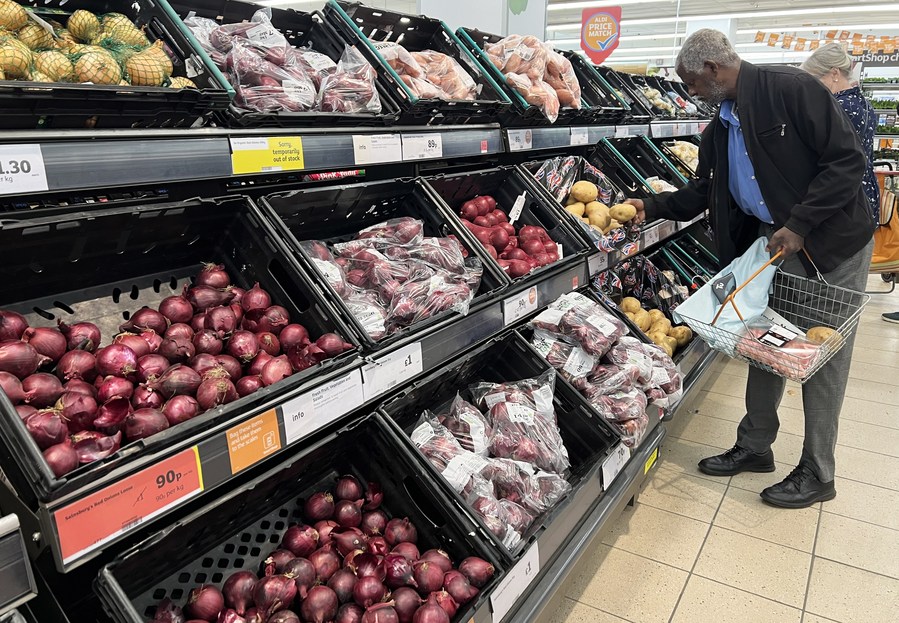UK inflation rate hits 40-year high as energy bill soars
 0 Comment(s)
0 Comment(s) Print
Print E-mail Xinhua, May 19, 2022
E-mail Xinhua, May 19, 2022

Britain's Consumer Prices Index (CPI) rose by 9.0 percent in the 12 months to April 2022, the highest level since 1982, the British Office for National Statistics (ONS) said Wednesday.
"Inflation rose steeply in April, driven by the sharp climb in electricity and gas prices as the higher price cap came into effect," said Grant Fitzner, ONS chief economist, adding around three-quarters of the increase in the annual rate in April came from utility bills.
Fitzner said the ONS also published new modelled historical estimates Wednesday which show that CPI annual inflation was last higher 40 years ago.
The soaring energy bill follows Britain's Office of Gas and Electricity Markets (Ofgem) cap increased on April 1. The Ofgem said the increased cap is driven by a record rise in global gas prices with "wholesale prices quadrupling in the last year".
The ONS said the rise resulted in 12-month inflation rates of 53.5 percent for electricity and 95.5 percent for gas, compared with rates of 19.2 percent and 28.3 percent respectively in the previous month.
Meanwhile, the average petrol and diesel prices were also the highest on record in April. The 12-month rate for motor fuels and lubricants was 31.4 percent, the highest since before the start of the ONS's constructed historical series in January 1989.
The Resolution Foundation, Britain's independent think-tank, urged the British government to provide further support for lower-income families. According to their analysis, they estimated that inflation for the poorest households was higher still at 10.2 percent.
Jack Leslie, senior economist at the foundation, said: "These recent drivers of inflation mean that lower-income families are facing the most severe cost pressures, with their inflation rate already hitting double digits. The government must provide further targeted support for those lower-income families at the sharp end of this crisis."
Rain Newton-Smith, chief economist of the Confederation of British Industry (CBI), also urged the government to support vulnerable firms. "Stimulating business investment is also crucial, to both plug the near-term gap in growth and to shore up the economy's potential to withstand future shocks," Newton-Smith said.
Looking ahead, some economists believed Britain's inflation rate is likely to stay high, while others said inflation likely will edge down over the coming months.
James Smith, an economist at ING Group, said while there are plenty of upside risks to Britain's inflation, he suspected April's 9 percent figure would mark the peak.
"Certain goods categories will start to pull down the headline rate, even if further pressure in food and services is yet to come. The key thing for the Bank of England is that inflation is likely to be below target by the end of 2023," he noted.
The Bank of England expected inflation to peak at "slightly over 10 percent" in the last quarter of this year as the energy price cap is likely to rise again in October. Britain's inflation rate has far exceeded the central bank's 2 percent target since last winter.






Go to Forum >>0 Comment(s)